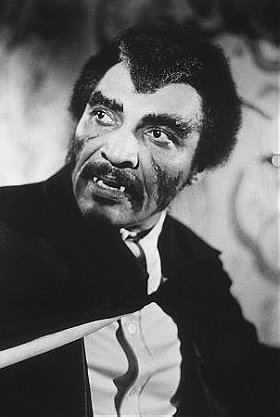William Marshall
Stats
Birth Name: William Horace Marshall
Born: 19 August 1924 Died: 11 June 2003
Country of origin:  United States
United States
Height: 6' 5"
Relationship Status: In a relationship
Partner: Sylvia Jarrico
Lists
98 votes
Gone, but not forgotten
(1954 items)list by Agent Kermit D. Fonz
Published 7 months, 1 week ago  10 comments
10 comments
 10 comments
10 comments34 votes
People...Black Actors
(887 items)list by william maxey 83
Published 11 years, 4 months ago  1 comment
1 comment
 1 comment
1 comment13 votes
STAR TREK TOS: RANKING THE EPISODES
(79 items)list by geojones100
Published 13 years, 3 months ago  2 comments
2 comments
 2 comments
2 comments6 votes
Tv Show Main Actors/Guest Stars The Jeffersons
(79 items)list by william maxey 83
Published 10 years, 4 months ago  1 comment
1 comment
 1 comment
1 comment4 votes
celebrities born in indiana (my homestate!)
(28 items)list by david
Published 13 years, 7 months ago
View all William Marshall lists
Photos
View all William Marshall pictures
Description:
Dynamic African American leading man and characters actor William Marshall trained in Grand Opera, Broadway and Shakespeare. In films from the 50s and 60s including: Lydia Bailey (1952), Something of Value (1957), To Trap a Spy (1964) and finally known for being in The Boston Strangler (1968) with Tony Curtis. Marshall really didn't hit it big until the "blaxplotation" era of the 70s. He starred in the contemporary vampire melodrama, Blacula (1972), and its sequel, Scream Blacula Scream (1973), and the Exorcist-type film, Abby (1974). From the 80s, Marshall was seen as the "King of Cartoons" on the Saturday m
... (more)
Tags:
My tags:
TV
Most popular
Top rated
Most recent

1. Star Trek (1966)
| Rating: | 1073 Watched |

2. The Real Ghostbusters (1986)
| Rating: | 442 Watched |

3. Pee-wee's Playhouse (1986)
| Rating: | 198 Watched |

4. Bonanza (1959)
| Rating: | 195 Watched |

5. Spider-Man and His Amazing Friends (1981)
| Rating: | 183 Watched |
View all William Marshall TV (29 more)
Movies
Most popular
Top rated
Most recent

1. Maverick (1994)
| Rating: | 960 Watched |

2. Blacula (1972)
| Rating: | 103 Watched |

3. The Boston Strangler (1968)
| Rating: | 96 Watched |

4. Amazon Women on the Moon (1987)
| Rating: | 94 Watched |

5. Scream, Blacula, Scream (1973)
| Rating: | 40 Watched |
View all William Marshall movies (18 more)
Books
Update feed
Agent Kermit D. Fonz added this to a list 7 months, 1 week ago
Gone, but not forgotten (1954 person items)
alison15 added this to a list 1 year ago
Vampires Suck!! Part 2 Actors (319 person items)
SA-512 posted a image 5 years, 11 months ago
Brian G added this to a list 7 years, 2 months ago
Famous Bonanza Guest Stars (307 person items)
 Login
Login





























